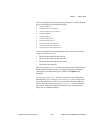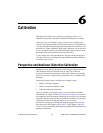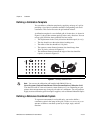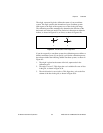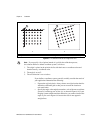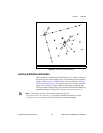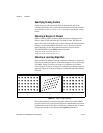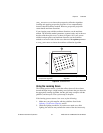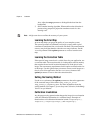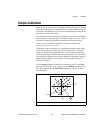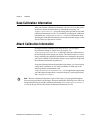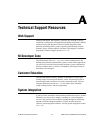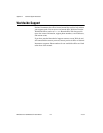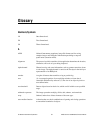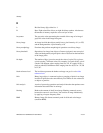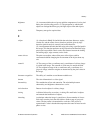
Chapter 6 Calibration
IMAQ Vision for LabWindows/CVI User Manual 6-8 ni.com
Also, adjust the range parameter to distinguish the dots from the
background.
3. Select another learning algorithm. When nonlinear lens distortion is
present, using perspective projection sometimes results in a low
learning score.
Note
A high score does not reflect the accuracy of your system.
Learning the Error Map
An error map helps you gauge the quality of your complete system.
The error map returns an estimated error range to expect when a pixel
coordinate is transformed into a real-world coordinate. The transformation
accuracy may be higher than the value the error range indicates. Set the
learnMap
element of the options parameter to
TRUE
to learn the error
map.
Learning the Correction Table
If the speed of image correction is a critical factor for your application, use
a correction table. The correction table is a lookup table stored in memory
that contains the real-world location information of all the pixels in the
image. The extra memory requirements forthis option are based on the size
of the image. Use this option when you want to correct several images at a
time in your vision application. Set the
learnTable
element of the
options parameter to
TRUE
to learn the correction table.
Setting the Scaling Method
Use the
method
element ofthe options parameter to choose the appearance
of the corrected image. Select either
IMAQ_SCALE_TO_FIT
or
IMAQ_SCALE_TO_PRESERVE_AREA
. For more information about the
scaling methods, see Chapter3, System Setup and Calibration,intheIMAQ
Vision Concepts Manual.
Calibration Invalidation
Any image processing operation that changes the image size or orientation
voids the calibration information in a calibrated image. Examples of
functions that void calibration information include
imaqResample()
,
imaqScale()
,
imaqArrayToImage()
,and
imaqUnwrap()
.



